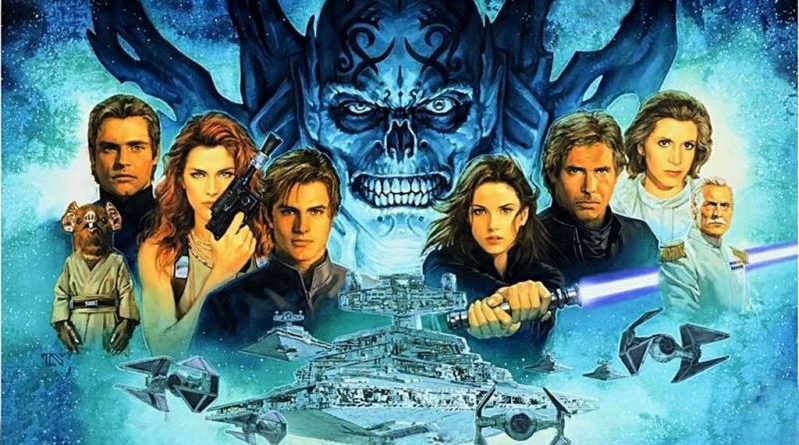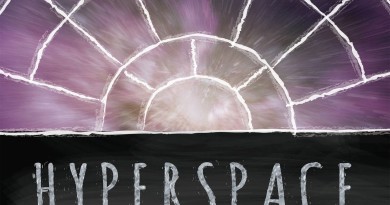Five Resolutions Star Wars Should Make
Kathleen Kennedy predicted that 2014 would be the “year of Star Wars.” Many in the fan community are ready and waiting for that prediction to run its course. With a little over 23 months until Episode VII’s release date, the events that will shape 2014 as Star Wars’ year are still somewhat of a mystery. What we will see is new stories, including Rebels later this year, merchandise, collector items, and tidbits of information to feed the speculation frenzy.
2013 was a transitional year for Lucasfilm and its megafranchise. Its employees were no longer guided by billionaire and visionary George Lucas, who very much saw Star Wars as his property to do with what he pleased; they became part of the fold of Disney, a company that understands that fans’ needs and expectations drive the business model and the bottom line. Between Iron Man 3 from Marvel Studios and Frozen from Disney Animation, the Mouse House has taken their storytelling to a whole new level. Outside forces, such as Lionsgate’s The Hunger Games sensation, are helping set a high bar, while the underwhelming results for Man of Steel and Star Trek Into Darkness demonstrated that special effects and destruction porn can only get a blockbuster movie so far. Good scripts and relatable characters that the audience can root for do matter.
When faced with a chaotic year, it’s best to keep the goals simple. Here are the five things FANgirl Blog believes Lucasfilm should focus on this year, so that by Episode VII’s release year these dynamics are simply part of the corporate mindset.
Engage Fandom
Everyone working on Star Wars, whether for Lucasfilm or a licensee, is a fan. It is entirely different thing, though, to be part of the fandom, by which I mean actively interacting with the broader fan community. Meeting fans, talking to fans, reaching out through social media – these are all necessary ways to understand the collective consciousness that is fandom. A good example would be Dark Horse’s Randy Stradley, who has interacted with fans on message boards over the years. Sure, sometimes that means listening to rants and fans proclaiming that the creative team is ruining Star Wars forever. Fans are vociferous and sometimes asking for the wrong things, but that isn’t a reason to shut out the concerns of the paying customer.
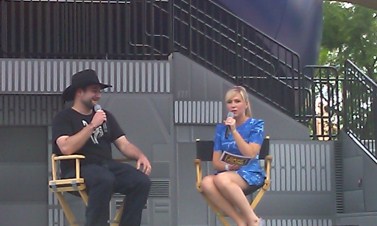 The fandom uproar that came with Ahsoka Tano’s introduction in The Clone Wars was similar to the tirades of some Hunger Games fans when Jennifer Lawrence was cast. It’s a far better thing for the fans to care that much than for them to not care enough to say anything at all. Really, both instances were about fan expectations. In both cases the storytelling team had made the right decision and the best way to prove that point was not to withdraw.
The fandom uproar that came with Ahsoka Tano’s introduction in The Clone Wars was similar to the tirades of some Hunger Games fans when Jennifer Lawrence was cast. It’s a far better thing for the fans to care that much than for them to not care enough to say anything at all. Really, both instances were about fan expectations. In both cases the storytelling team had made the right decision and the best way to prove that point was not to withdraw.
Star Wars needs more ambassadors like Dave Filoni and Ashley Eckstein – actually the entire cast of The Clone Wars – who stepped into the fandom and experienced it with the community, even the things the community reacted to negatively. In the end, Ahsoka, Filoni, and the show earned respect and admiration from a wary fandom. Jennifer Lawrence and Nina Jacobson certainly earned their fandom’s admiration in spades, as well. From Harry Potter to Hunger Games in movies and Once Upon a Time to Sleepy Hollow in television, we’re seeing more and more examples of fan engagement bolstering entertainment-industry success as creators begin to see interaction with the fans as a mutually beneficial arrangement.
Images of the gatherings for the very first screenings of Star Wars in 1977 prove that the franchise has always been about community. If the people working to create Star Wars don’t understand the community – the fandom – then it’s only a matter of time before Star Wars will be relegated to a used-to-be major franchise.
Passion Above All Else
Passion defines Star Wars. The characters are passionate. Han and Leia were passionate in a good way; Anakin’s and Padmé’s passion ended in a bad way. Then Luke Skywalker harnessed that thing called love to redeem his father. And George Lucas built a commercial empire so he could make the movies he wanted. There’s a fine line, though, between passion, a singular focus to the exclusion of all else – I’m talking Lucas and Anakin here – and commercialism.
A good example from 2013 for passion oozing from Star Wars products is Dark Horse Comics. Despite the specter looming over the company’s head that Disney’s acquisition foretold the end of their license, Dark Horse had a stellar year. When The Star Wars was announced, it was one of those projects that didn’t flip my fangirl Whopper. Still, I had enough understanding of the fandom to know that the concept had the potential to excite many other fans – and sales exceeded everyone’s expectations. 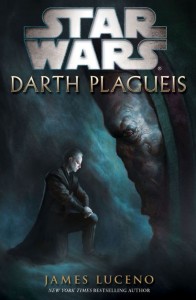 It didn’t hurt that J.W. Rinzler and everyone else involved in the project exuded passionate enthusiasm about the comic, similar to the vibe from James Luceno for the novel Darth Plagueis and Timothy Zahn for Heir to the Empire. From passion comes an understanding of what Star Wars actually is at its core: a grand epic adventure, a fairy tale, exploration of self, a hero’s journey, and most of all fun.
It didn’t hurt that J.W. Rinzler and everyone else involved in the project exuded passionate enthusiasm about the comic, similar to the vibe from James Luceno for the novel Darth Plagueis and Timothy Zahn for Heir to the Empire. From passion comes an understanding of what Star Wars actually is at its core: a grand epic adventure, a fairy tale, exploration of self, a hero’s journey, and most of all fun.
Unfortunately Darth Plagueis is the last novel in the vein of this past year’s Dark Horse work, although the smash success William Shakespeare’s Star Wars harnessed the whimsical fun of movies that took a lot of tropes from the sixteenth-century storyteller. Improved from previous years in a lot of ways, last year’s offerings from Del Rey never managed to wrap all of Star Wars’ core elements in one package. Honestly, Darth Plagueis isn’t all of those things either, but it was a grand exploration of the movie myth and some of its more memorable characters. That’s not to say every book or comic needs to have all the core Star Wars elements, but it’s still a long while since the fandom has been able to sink our teeth into novels that felt as big and adventuresome as the movies.
There are a lot of reasons for this, many of which I have expounded upon previously, but one of the most obvious obstacles recently has been time – even good storytellers were reduced to just writers in order to meet deadlines. Many original Star Wars fans feel the Prequel Trilogy suffered because the story, especially Attack of the Clones, never had a chance to marinate as it was rushed through development. Sure, Naboo looked awesome – but given the choice I’ll watch any of the Original Trilogy movies with their dated special effects over Episode II.
Sometimes good things take time, like Darth Plagueis, or come from a guy or gal who literally has everything to gain and nothing to lose, like Timothy Zahn as he wrote Heir to the Empire or George Lucas as he made A New Hope and The Empire Strikes Back. The December 2015 release date for Episode VII is a good start. Hopefully the other upcoming projects in the franchise will also give their creators the time to fulfill their passion to the fullest, rather than just hitting deadlines.
Women Storytellers
Between the two Star Wars EU panels at San Diego Comic-Con only one woman writer sat on the stage. The Star Wars Reads Day promotional video had no female authors. When the master filmmaking team for Episode VII was announced in October, it was entirely male with the exception of Kathleen Kennedy. The Rebels executive producers are all male, and when the first shots of new team members went up in a video the only named woman on the team was line producer Athena Portillo. 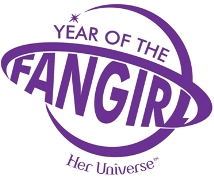 That said, plenty of the male creators on those lists have proven chops when it comes to creating great female characters. Still, between Her Universe and the blogosphere we’ve blown the lid off the notion that Star Wars has just been a boys’ franchise, and when Disney wanted to redefine their animation studio brand, women were integral parts of the process in what some are dubbing the studio’s next golden age.
That said, plenty of the male creators on those lists have proven chops when it comes to creating great female characters. Still, between Her Universe and the blogosphere we’ve blown the lid off the notion that Star Wars has just been a boys’ franchise, and when Disney wanted to redefine their animation studio brand, women were integral parts of the process in what some are dubbing the studio’s next golden age.
It is human nature for people in decision-making positions to stay in their comfort zone, to hire their friends or people they know. The security and confidentiality needs of a franchise like Star Wars only reinforce that mindset. Star Wars was a game-changer for women in movies and storytelling from the beginning, and it should be now too. The Powers That Be for Star Wars need to challenge themselves to get outside that comfort zone, to hire women who have proven their ability to speak their mind, engage fans, create awesome female characters, and tell fantastic stories in movies, on television, in books and comics and beyond. They exist; they just need a chance.
Adding passionate women storytellers will also help in the four other areas of concern addressed in the post, especially the next one.
Explore the Universe
It’s hard to put a finger on this one as a fan, to explain what I think many working in the franchise lack, but it goes something like this: the courage of Luke Skywalker, the boldness of Leia Organa, and a sense of adventure as depicted by Han Solo.
On the fan fiction side of the fandom we hear a lot of dismissal of that type of creation from professionals. “It’s too safe,” they say. “It’s not original. It’s feeding the id.” We in the fandom call safe, unoriginal, id-feeding creation “fanwank.” There are many, many people within the creative teams that do admirable work; we applaud them often here at FANgirl. 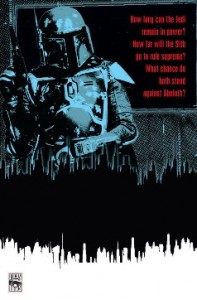 Looking at Star Wars as a whole, it is a transformative phenomenon. It created new ways to tell stories, additional means to make movies, numerous methods to enjoy the Galaxy Far Far Away, and so much more.
Looking at Star Wars as a whole, it is a transformative phenomenon. It created new ways to tell stories, additional means to make movies, numerous methods to enjoy the Galaxy Far Far Away, and so much more.
Everyone gets that Boba Fett is cool; so are Leia, Han, Anakin, Obi-Wan, Luke. We also know that Tatooine has a fascinating western flavor, that Twi’leks make good dancing girls, the Mon Cal are fierce warriors, Mandalorians are mercenaries with a code of honor… Okay, maybe that one doesn’t prove the point. The magic of Star Wars is the joy of discovery, exploring new worlds, seeing new creatures. It is possible to ruin a good thing or to get stuck in a rut, like Boba Fett’s seemingly endless streak of appearances in Star Wars novels and comics. Each story where Fett nearly misses Han lowers the beloved bounty hunter’s badass quotient. Series after series built on Luke’s legacy have devalued his currency as a hero – who some consider the most iconic hero ever.
My point is: Getting paid to work on Star Wars does not give anyone a pass that says “I have not created fanwank.” After reading Dave Filoni’s interview on StarWars.com, we can see that even George Lucas knew that:
We had a lot to learn in the beginning, and I think that we made certain mistakes that are unavoidable when you’re a fan, that you do things that you’ve seen in the movies repeatedly, and you just want to capture that feeling so you’re just repeating things more than innovating. And George warned us in the beginning. We didn’t quite understand what he was talking about, and as we went along and became better at what we were doing, we understood the path of making these types of stories a lot better, and the method of how to make them a lot better.
The second greatest thing about Star Wars is the infinite possibilities it creates. It is the proverbial mystery box of which Episode VII director J.J. Abrams speaks. George Lucas gave you the keys to the spaceship. Are you just going to fly it around the neighborhood? Go explore the galaxy. Have fun. Enjoy the adventure that we all felt the first time we experienced Star Wars!
Recently, Simon Kinberg talked about Rebels with this spirit of braving the unknown. Hopefully, the show will pave the way for more stories with daring adventures, new places, fresh faces, and with a little luck, some more of the greatest thing to come from the franchise. Which leads to my final resolution…
Create Heroes
In the same video, Kinberg talked about how daunting the creation of a Star Wars villain is. Over the past decade, the franchise has practiced that side of character creation far more than the most important piece of the Star Wars magic potion – developing a hero that can equal or surpass its greatest hero, Luke Skywalker. By the time the original Legacy comic series and Fate of the Jedi books concluded, there were so many Sith running around the galaxy that it was almost comical. If the franchise had tried that hard in the past decade to create heroes, well, there should have been more greats worthy of the Star Wars mantle.
Anakin Solo, whose death in Star by Star happened over twelve years ago, had huge potential among the fandom, but his fate was sealed when he was given the name Anakin. This makes my fourth point above even more tragic. Anakin Solo’s promise was squandered because the storytelling team played it safe and used an established Star Wars name instead of making up one of their own. 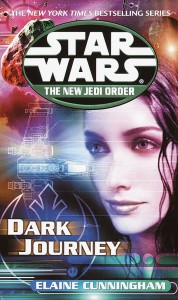 Like her younger brother, Jaina Solo had all the right archetypal qualities and she even had an awesome heroine’s journey in the New Jedi Order. Any semblance of a continued hero’s journey ended with Exhibit Number One for fanwank, the Dark Nest trilogy. Jaina was never the same after that, and neither was Jacen or the Expanded Universe fandom, for that matter. Cade Skywalker is an awesome lead in an amazing story that weaves Original Trilogy and Prequel Trilogy themes, but he was an anti-hero who denied the call of the hero’s journey for forty-plus comics issues; his story was redemptive more than heroic. Mara, too, was a redeemed hero. Luke and Mara’s son Ben foreshadowed the emo how-are-we-supposed-to-root-for-this-guy superheroism on display in Man of Steel. Obi-Wan Kenobi is a fantastic heroic character, but he has best served Star Wars storytelling as the solitary rock that the forces of good and evil thrash against endlessly like wind and waves.
Like her younger brother, Jaina Solo had all the right archetypal qualities and she even had an awesome heroine’s journey in the New Jedi Order. Any semblance of a continued hero’s journey ended with Exhibit Number One for fanwank, the Dark Nest trilogy. Jaina was never the same after that, and neither was Jacen or the Expanded Universe fandom, for that matter. Cade Skywalker is an awesome lead in an amazing story that weaves Original Trilogy and Prequel Trilogy themes, but he was an anti-hero who denied the call of the hero’s journey for forty-plus comics issues; his story was redemptive more than heroic. Mara, too, was a redeemed hero. Luke and Mara’s son Ben foreshadowed the emo how-are-we-supposed-to-root-for-this-guy superheroism on display in Man of Steel. Obi-Wan Kenobi is a fantastic heroic character, but he has best served Star Wars storytelling as the solitary rock that the forces of good and evil thrash against endlessly like wind and waves.
Only one character comes to mind that really reached for the heroic high-bar of Luke Skywalker, and that is Ahsoka – who was created by George Lucas and Dave Filoni, then gone too soon with the sale to Disney. A truly well-designed hero is incredibly hard to create, which may be why so many storytellers don’t even try. It’s safe to play with the same old characters, but they don’t and can’t all hold up like Obi-Wan. The danger of playing with the favorites is that they can easily become weathered and worn beyond recognition so even the fans are begging to have them put out of their misery.
Time perhaps, for some storytellers to stop refusing the call, and take a hero-making journey of their own. Or perhaps, time for some fresh faces with nothing to lose and everything to gain. In my honest opinion, in every fruitful franchise that I have covered this year outside of Star Wars, one thing has made their creators brave, fresh, and exciting –and that’s being part of the fandom.
Tricia Barr took her understanding of brand management and marketing, mixed it with a love of genre storytelling, and added a dash of social media flare to create FANgirl Blog, where she discusses Star Wars, fandom, and strong female characters. She also writes about Star Wars for Random House’s science fiction and fantasy blog Suvudu.com and Star Wars Insider magazine and is a contributor for Her Universe’s Year of the Fangirl. Her FANgirl opinions can be heard on the podcasts Assembly of Geeks and RebelForce Radio Presents Fangirls Going Rogue.
Tricia has completed her first novel, Wynde – a military science fiction with a fantastical twist that features heroines Vespa and Gemini. For excerpts and tales of her adventures in creating a fictional universe, hop over to TriciaBarr.com.
For updates on all things FANgirl follow @FANgirlcantina on Twitter or like FANgirl Zone on Facebook. At times she tries the Tumblr.
- Hyperspace Theories: The Curious Case of Kathleen Kennedy’s Retirement - March 10, 2025
- Hyperspace Theories: SKELETON CREW Ahoy! - December 29, 2024
- Hyperspace Theories: WICKED Part I Rises to the Moment - December 6, 2024

